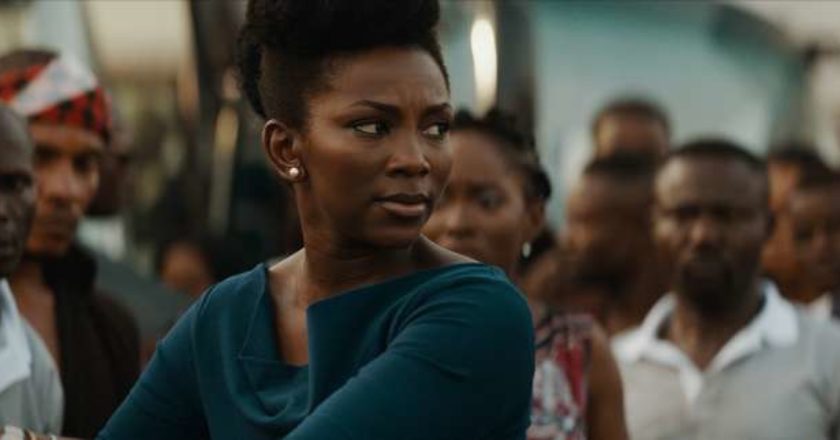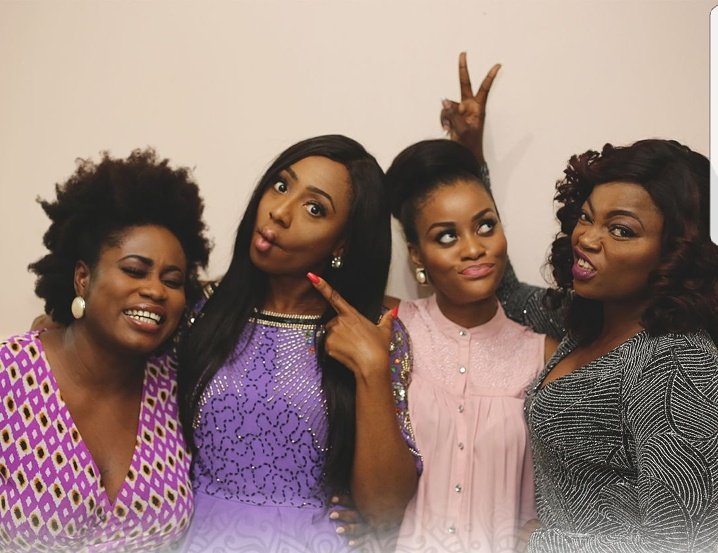The simple story has become an endangered species and this couldn’t have been more evident than with Lionheart, Nigeria’s first ‘Netflix Original’ and veteran actress, Genevieve Nnaji’s directorial debut.
Much as been made of what it could have, should have been, largely due to Netflix’s involvement as it is expected that the streaming giant’s association with any artistic effort would automatically make it gold.
However, there are quite a number of films in this regard that for all the awesomeness of Hollywood, fail to even have a few sprinkles of bronze on them – this applies to both films produced by Netflix and the ones which rights they bought. Lionheart isn’t one of them.
Lionheart reminds keen followers of the Nigerian movie scene what Nollywood films of the 90s used to be, without most of the technical shortcomings. This isn’t just nostalgia taking hold though; albeit being a simple story, this is a film with a lot of heart and charm, showing a daughter’s race against time to save her father’s company from going under.
With this film, Nnaji shows a lot of promise as a director and leaves one excited about what she could come up with in future from behind the chair.
With most movies in recent times aiming for the shock factor with unexpected plot twists and convoluted sub-plots, Lionheart’s simplicity could easily be mistaken for being basic.

As it is, those who say less is more seem to know what they’re talking about and there is something to be learned from the ability to tell a simple story that takes viewers from Point A to B, and tell it well and this is where this film succeeds.
Central to this success is the cast and acting. Nnaji’s effort might have been made easier with a selection of established veterans who at this stage need little or no directing. While this may be easy to say though, it’s important to consider the tone of this movie from start to finish – it was never off – so credit should be given.
Pete Edochie rolled back the years as the Obiagwu patriarch and was ably complemented by Onyeka Onwenu, whose skill as a musical artiste is matched by her acting capabilities. Genevieve herself performs admirably and Nkem Owoh was a treat as usual. The supporting cast also gave a good showing and this is one of the areas where the director shines.
Language is central to this film and it’s hard to imagine how it would have fared were it to have been delivered in English from start to finish – there’s a temptation to cringe actually. It’s a thing of beauty to watch a movie so unapologetically Nigerian – yes, Igbo was the language of choice but it is refreshing to be rid of the highfalutin accents and pretentious aura that bedevils most Nollywood films of the past decade.
Cinematography, editing and transitions were competently handled and everything seemed to fit together like components of a well-tuned engine.
This review would not be complete without a mention of the themes explored in this film. While family is the most obvious from the get go, Lionheart expertly takes on gender in the Igbo socio-cultural milieu. Other than the need to save her father’s transportation business, Genevieve’s Ada had to contend with the need to prove herself as being good enough to run the company especially with the men around her.
It was quite nuanced and seeing her battle with a wave of different emotions upon the arrival of her uncle – who turned out to be a ‘ride or die’ fellow – was a joy to watch. The film also bravely takes on intertribal relationships, particularly with the Hausa whom the Igbo have had an historical fractious relationship with.
This is not to say that Lionheart is a perfect movie, far from it. The way the conflict was delivered leaves much to be desired and one wonders if more time should have been spent tightening the script. Were it not for most of the positives in the film, this is a critical flaw that could have marred the entire movie.
For one, it is difficult for a business owner to secure a loan of almost a billion naira without board knowledge or approval. It’s also hard to believe that a competitor attempting to execute a hostile takeover would simply waltz into, and appear to chair a board meeting set up by just one member working in his favour without anyone else’s knowledge.

But this is Nigeria, some of these things happen but it should have been worked better, especially considering that writers like CJ Obasi were on it.
Still, it’s refreshing to see a film with great chemistry among the actors, with the dialogue and scenes doing well to coherently advance the story from start to finish.
Lionheart might not be the finished article as a director but it’s clear that Netflix saw more than just an inroad into the Nigerian movie industry but a good story as well. With this film, Genevieve has achieved in one attempt what a lot of her peers have failed to do and it leaves one excited about the prospects of what she could do going forward.
ABOUT DEOYE
Deoye Falade is a communications professional and writer whose work has spanned both mainstream media and corporate sector. He was among the 20 Young Critics trained by the International Association of Theatre Critics during the 2017 Lagos Theatre Festival. He also contributes features and movie reviews for True Nollywood Stories, AfriReviews and other top media outlets. When he’s not being lazy or up to some mischief on social media, he pretends to express a sane literary side on his blog.



